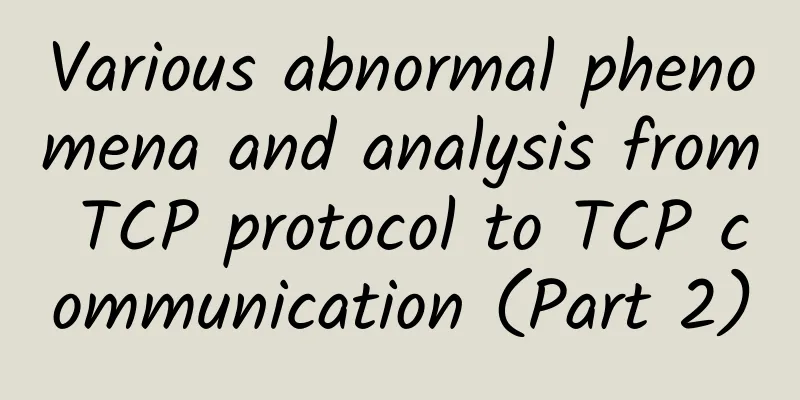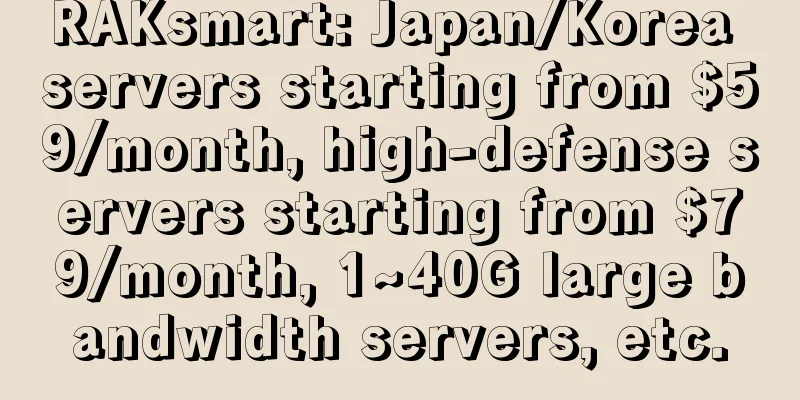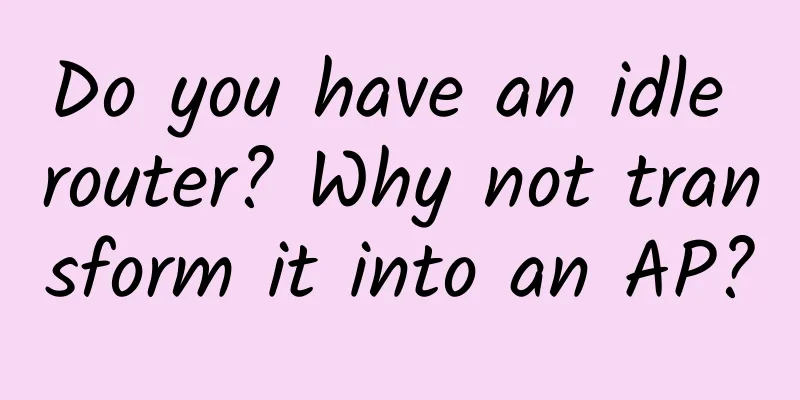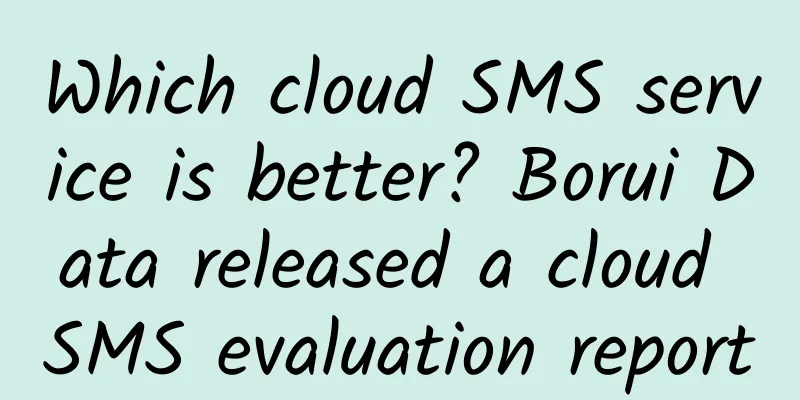The black industry chain operators behind free traffic lose hundreds of millions every year
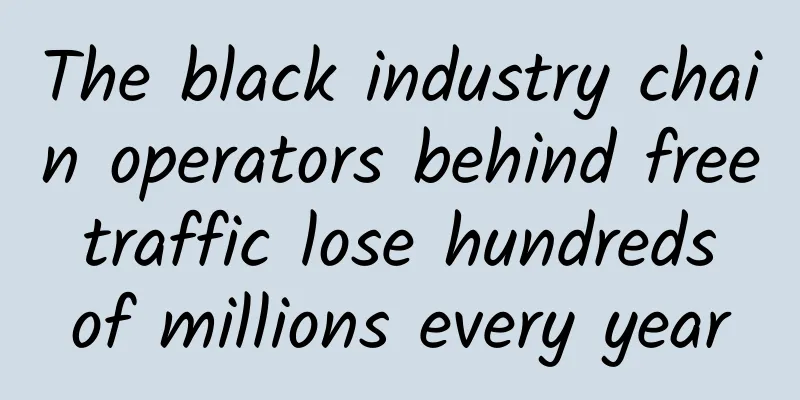
|
Behind the “free traffic” is actually a black industry chain. According to the investigation, “free traffic” products including mobile phones, software, and tutorials have spread all over the Internet. However, according to insiders of operators, these so-called free traffic products are the product of exploiting the loopholes of operators’ targeted free traffic, which can cause operators to lose hundreds of millions of yuan every year. In the view of industry insiders, once this phenomenon is formed on a large scale, it will increase the network pressure and economic losses of operators, and also increase the maintenance and service costs of operators for network construction. Although operators have begun to take measures to fill the loopholes, technicians still have new ways to fight back. The proliferation of “free traffic” products On a certain e-commerce platform, the reporter entered "free traffic" and found nearly 3,000 product information. The more representative ones are the following three products: The first product is called "Free Unlimited Data Mobile Phone" and its price is around a few hundred yuan. The merchant describes it as follows: "This phone cares about the core technology of the card and has nothing to do with the model and quality of the phone. This phone is an integrated card and machine, and does not require any additional recharge. You can use it by simply turning on the hotspot. It is easy to operate. Up to 8 devices can be connected." The merchant said that the supply of mobile data is based on the server terminal, which enables remote network reception without deducting any data or call charges from the card. The second product is "unlimited traffic software" for only 1 yuan. According to the introduction, the seller will give the buyer an account and password. Each time the software logs in or connects, it may consume about 50KB of mobile phone package traffic. The software that comes with the mobile phone is allowed to use a small amount of traffic in the background. A seller said: "Our company cooperates with China Mobile to contract monthly traffic and traffic pools, and develops a traffic distribution system through our company's technology to achieve unlimited traffic use." In addition, there are also merchants selling "free traffic tutorials" for 9.9 yuan. On the store's page, there is not much introduction about the product, only "The store has cooperated with the studio, and the success rate of new tutorials obtained from the studio is over 99%. The tutorials will be updated from time to time, and no fees will be charged. Once purchased, it can be used forever." Since no one answered the customer service, the Beijing Business Daily reporter had no way of knowing how to use this free traffic tutorial. The store's comment area shows that there are many consumers who have purchased mobile phones, software and tutorials, but some of the comments are "easy to use", and some consumers call the merchant a "cheater" and the product unusable. Exploiting operator loopholes When you first see these products, you may mistakenly think that these products are produced by cooperation between merchants and operators. A Beijing Business Daily reporter verified this with a relevant person in charge of China Mobile, who pointed out that China Mobile has never had such a business. A relevant person in charge of China Telecom told the Beijing Business Daily reporter that the so-called "free unlimited traffic" was "stolen" from operators by illegal vendors. That is, the relevant technicians exploited the loophole of the operator's "free directional traffic". It is understood that in order to improve services for users, operators have always provided free directional traffic. A large number of Internet companies have cooperated with operators, and both parties share the traffic costs and provide users with directional free traffic for designated services. Operators can not only improve users' mobile Internet experience and mobile network stickiness, but also increase traffic access, form user traffic usage habits, and then bring in revenue from paid content and other services. In order to avoid loopholes and risks, operators will clearly distinguish whether users are using free traffic services or normal Internet access services. Usually, operators will add the server IP addresses of free traffic services to the whitelist, and users can access the Internet for free traffic by visiting the whitelisted URLs. Access is not charged, and in order to simplify maintenance complexity, they can even directly perform label authentication. However, this method has been used by illegal vendors as a tool to seek profits. According to technical personnel, traffic sellers only need to apply for a VPS cloud host on the Internet, build a virtual private network server (VPN), and then use a simple disguise to make the operator believe that the traffic requested by this VPN comes from the operator's free traffic website. In this way, the VPN traffic they control becomes paid by the operator. Afterwards, by controlling the account permissions of the VPN, traffic resellers can sell the operator's "free traffic" to users at a low price. Hundreds of millions of dollars lost every year Last year, Wuyun, a domestic vulnerability reporting platform, announced that in order to provide convenience to customers, operators have set up a whitelist of users who are exempt from traffic charges. When the billing system detects that the user is visiting a URL on the whitelist or receiving an MMS, no fees will be charged. If the vulnerability expands, the operator will suffer excessive losses. An insider of an operator revealed to the Beijing Business Daily reporter that this situation is actually due to a loophole in the billing instructions or billing information. Someone modified the billing instructions during the information transmission process, and the wrong instructions were sent to the billing system, which led to the above result. However, this is not a problem with the billing system. If there is a loophole in the billing system, it will have very serious consequences. The operator has optimized the billing information unit. In this regard, independent telecom analyst Fu Liang believes that this loophole actually exploits the free channels of some special applications, but the simulation space is limited, and the resulting losses are not large for operators. A relevant person in charge of China Telecom said that the specific figures of losses caused by illegal vendors "stealing" traffic have not yet been counted, but some experts believe that the gray industry chain of "free traffic" has already formed a scale, and if it continues to develop at this speed, it will cause considerable property losses to operators. According to estimates, the total losses of the three major operators on this issue will be hundreds of millions each year. It is reported that Beijing Unicom has modified its billing model and blocked some of the current directional traffic free-flow plans, and other operators have also launched comprehensive filtering and investigations on this business. However, since operators have deployed many servers across the country and each province has its own billing system, it is extremely difficult to verify the gaps one by one. |
<<: The US launches a five-year plan to replace copper with fiber to build 10Gbps fiber networks
>>: The Internet of Things drives the rapid development of the chip industry
Recommend
Ministry of Industry and Information Technology: Promote the construction of a strong manufacturing country and a strong network country to a new level
Xiao Yaqing, Minister of Industry and Information...
China Mobile's elimination of fake 5G users may be the reason for the slowdown in 5G user growth
Due to pressure from all sides, the three major o...
ReliableVPS: $33/year KVM-4GB/40GB/10TB/New York data center
ReliableVPS is a relatively new foreign VPS host....
Summary information: CUBECLOUD/Duoxiantong/CYUN/PIGYun/Ouluyun/VoLLcloud/Hongsu Technology
July and August are the summer vacations, and man...
5G ToB development enters a golden period, and industry-specific networks enable digital transformation
[[386226]] 1. Introduction With the vigorous prom...
Modbus protocol: the cornerstone of industrial communication
In the wave of modern industrial automation, real...
In-depth analysis of SSL digital certificates to protect corporate websites
An SSL certificate is a type of digital certifica...
Huawei Vice Chairman Hu Houkun: Crossing the business chasm and creating new 5G value
During the 2020 Global Mobile Broadband Forum, Hu...
Where is the future of 5G terminals?
[[400174]] In the 5G era, in order to rapidly adv...
IEEE: Artificial intelligence, 5G, and the Internet of Things will be important technologies in 2021
On November 26, foreign media reported that accor...
Huawei hosted the "Network-based Intelligent Manufacturing for the Future" Advanced Industrial Network Forum
On September 16, during the China Industrial Inte...
Ethernet vs. WiFi: A Comparison of Internet Connection Technologies
The world is generally moving from wired to wirel...
PacificRack July Promotion: Los Angeles KVM monthly payment starts at $1.5, 1G memory package annual payment starts at $12
PacificRack released several special products thi...
Huawei launches the "Bo Le" mode: Interesting souls should show off in the Future Application Creativity Competition!
[51CTO.com original article] Technology has been ...
5G: Smart cities’ potential to transform public services
While drawing parallels between 5G and national s...

